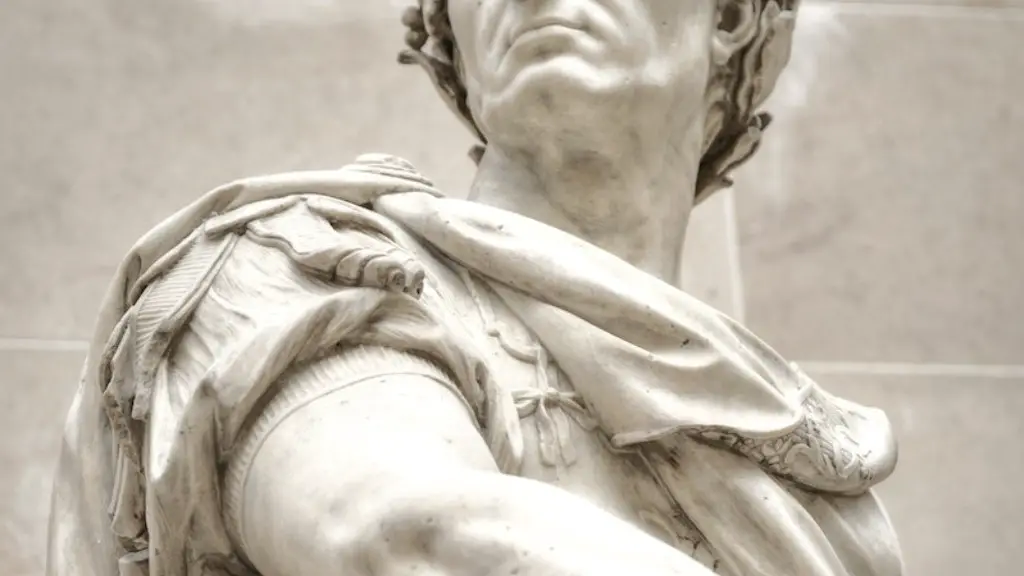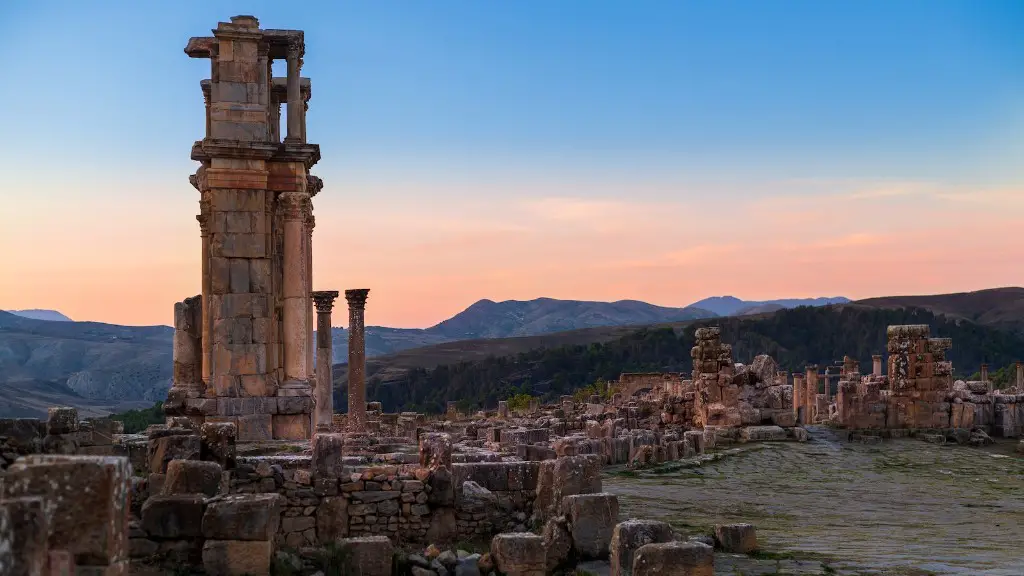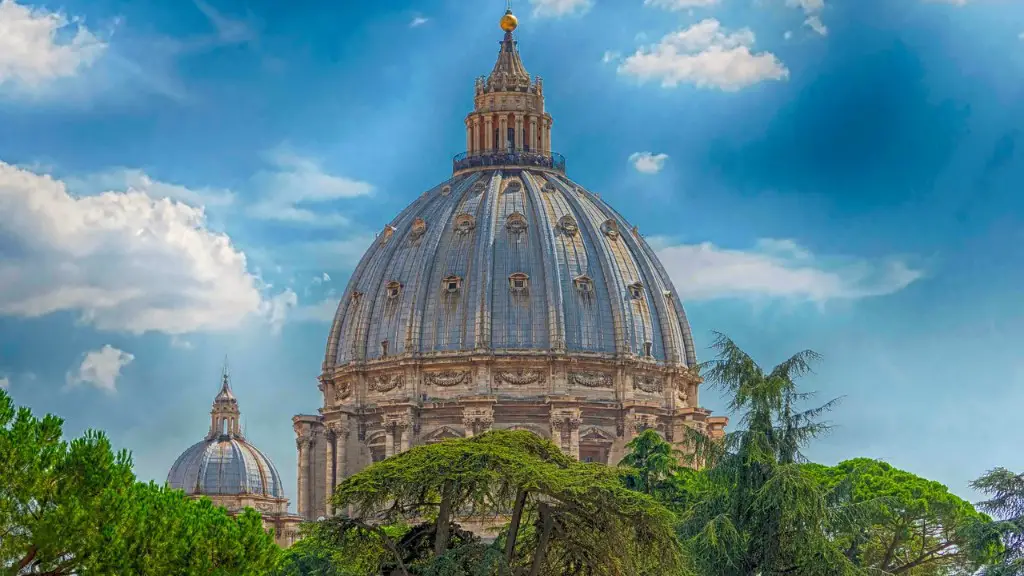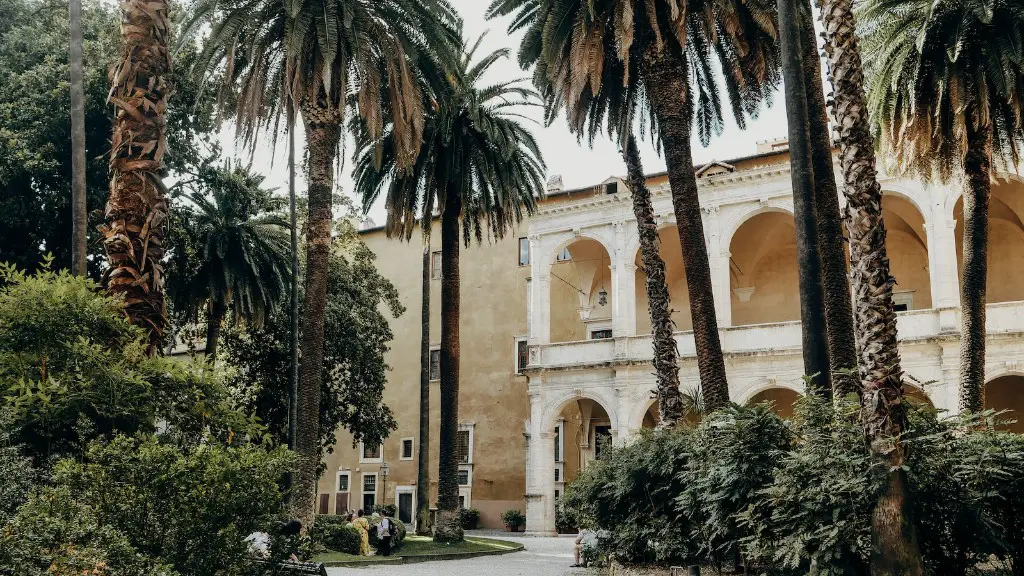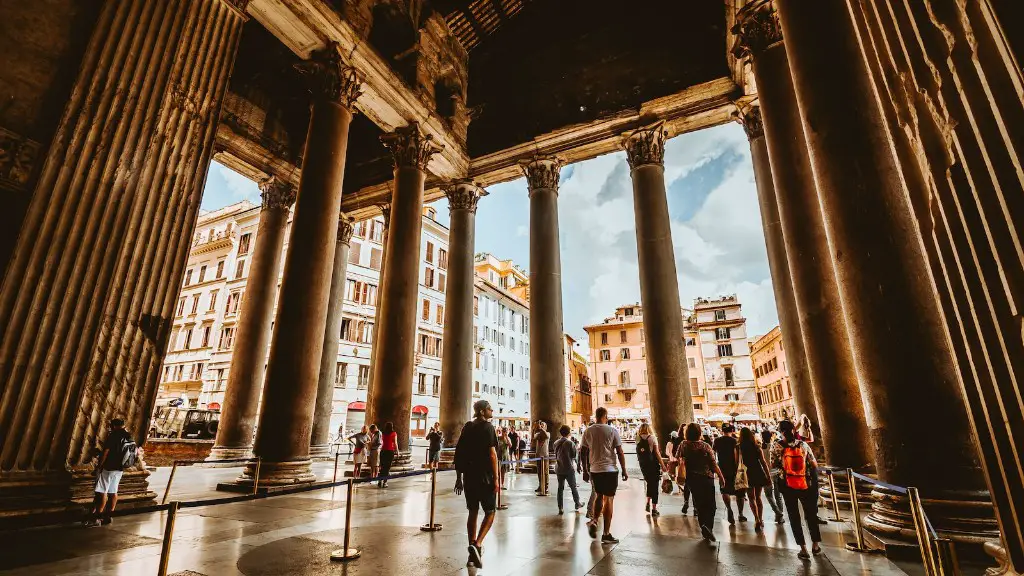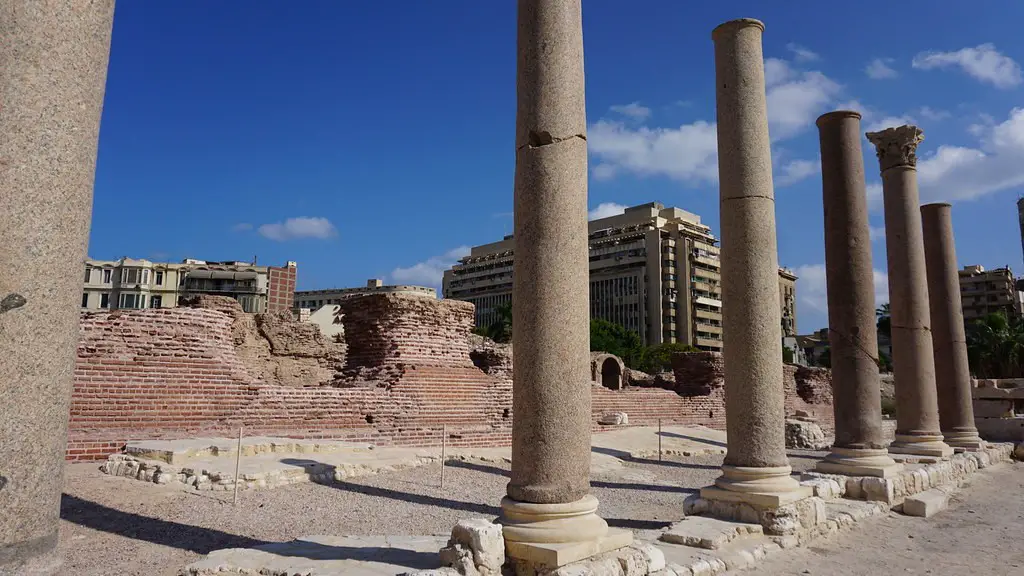Ancient Rome was one of the most powerful and influential civilizations in world history. It was at the center of innovation and creativity for centuries, and it had a large role in shaping the world we know today. Through its expansive network of trade and its advancements in governance, engineering, philosophy and much more, the Ancient Roman civilization left a lasting impact on our world. What was important to the Ancient Romans?
The Ancient Romans believed that success and power came from a combination of military strength, public works, and religious piety. Military strength was very important, as Rome was constantly expanding its dominion over lands to the North, East, and South. Rome had developed a strong army and navy, with a well-trained cavalry and foot soldiers. Public works were also important because they demonstrated Rome’s wealth and generosity, and they made the city beautiful. The Romans also believed in using their public works to honor the gods, as evidenced by their impressive temples and monuments.
Religion was also very important in Ancient Rome, as the pantheon of gods offered guidance and protection to individuals and the state. Even the Senate was made up of members devoted to their favored gods. The Roman religion allowed for a variety of gods, with each person having the freedom to venerate whichever gods they pleased. This variety of methods of worship opened the door for a wide array of religious ceremonies and festivals.
Education was also highly valued in Ancient Rome. This was due to the fact that many of the people in power came from privileged families that could afford private tutors. The public schools were less prestigious, but still an important part of the Roman educational system. Most of the public school curriculum revolved around the classics, such as rhetoric, grammar, philosophy, and geometry.
The arts were also essential to the Ancient Romans. Music, paintings, and sculptures were all important ways that they expressed their love of beauty and their beliefs. Roman literature was also highly regarded and included many poets, orators, and historians.
Finally, commerce and trade were very important in Ancient Rome. Trade was a major component of the Roman economy, and merchants were highly respected. Foreign merchants even had their own special market in the city. This allowed Rome to build relationships with other nations, expand its sphere of influence, and get valuable goods.
Recreational Activities
Recreational activities were also important to the Ancient Romans. They enjoyed chariot races, gladiatorial games, and ball games. Many of these activities were seen as a form of entertainment, but they often had religious or ritualistic significance as well. The audiences at these events could expect to be entertained and often found themselves learning about different cultures. For example, foreign art and architecture were often showcased at these events. Additionally, the audience at these events could demonstrate loyalty to the state by cheering for their favorite competitors.
Romans also enjoyed outdoor activities such as hunting, fishing, and horse riding. They believed that these activities helped them to stay healthy and allowed them to bond with nature. They also used these activities as an escape from their everyday lives. They would often gather with friends and family at leisure parks with exotic plants and animals.
The Ancient Romans enjoyed a range of board games as well. Dice, knucklebones, and latrunculi (a chess-like game) were all popular pastimes. Chess, or auscupis, was also played. Women even had their own forms of entertainment, such as playing checkers or teaching young children about Roman gods and goddesses.
Achievements in Engineering
The Ancient Romans also excelled in engineering. They developed a widespread network of roads and aqueducts that allowed for extensive travel and communication. This network was so efficient that it was even used by the military to move troops and supplies. Rome also had a large number of magnificent monuments and bridges, such as the Colosseum and the Pont du Gard.
The Romans also used engineering for military purposes. They developed strong fortifications and siege machines, such as the ballista and the catapult. In addition to being weapons, these machines were also used to build bridges and walls. Roman engineers also developed mining techniques that allowed them to extract minerals and gems from the earth.
One of the most impressive achievements of Roman engineering was the construction of the harbors at Ostia and Puteoli. These ports allowed for the navigation of both local ships and foreign vessels throughout the Mediterranean Sea. This enabled Rome to establish relationships with foreign powers, trade goods, and expand its reach.
Developments in Medicine
The Ancient Romans also made great strides in the medical field. They had access to many medical books that were written by the leading authorities in the world, such as Hippocrates and Galen. The Roman doctors also developed specific techniques and instruments that were used to diagnose and treat illnesses. Some of these instruments are still used today, such as the thermoscope (for measuring body temperature) and the scalpel.
The Romans were also very mindful of hygiene and sanitation. They had running water in their cities and towns, as well as public baths. This public bath system provided them with access to clean and hot water for bathing and for washing their clothes. This was a major influence on the health of the people.
Finally, the Romans developed many remedies and cures for different illnesses. They had both herbal remedies and medicinal potions that could be used to treat common ailments. Many of these remedies are still in use today, such as castor oil for soothing stomach ailments and basil for treating headaches.
Societal Structure
The Ancient Roman society was divided into classes. The most powerful class was the patricians, which included the governing elite, the wealthy landowners, and the religious leaders. The next class was the plebeians, who were mainly the working class or farmers. The lowest class were the slaves, who were owned by the other classes and had no rights.
Though there was a level of inequality between the classes, the Ancient Romans developed a system of justice and law that was unheard of in other civilizations at that time. This legal system was based on logical principles, such as the idea of ‘fault’. This principle allowed for people to be judged individually, not just based on their rank or class. The Romans also had clear rules and punishments for crime, which allowed for a sense of justice in the society.
As part of this legal system, the Ancient Romans also developed a system of government. This government was based on a combination of monarchy, oligarchy, and democracy. The Senate was the most powerful body in the government, and it was composed of the wealthy landowners. They were responsible for making laws and providing guidance to the Emperor.
Cultural Impact
The Ancient Roman civilization had a lasting impact on the world. Many of Rome’s innovations and advancements are still in use today, such as the modern legal code and the calendar system. Rome’s influence has also been felt in art, architecture, literature, and language. It is not surprising that the Latin language is still used today in many languages, including French, Spanish, and Italian.
Finally, the Ancient Romans also left a lasting impact on religion. Many of the gods worshipped by the Ancient Romans have been absorbed into Christianity, such as Mercury and Mars. The Roman Catholic Church is also largely based on the Roman Empire’s religious belief system.
In conclusion, the Ancient Romans were a powerful and influential civilization that left a lasting impact on the world. From their impressive military and engineering feats, to their advancements in education, culture, and religion, it is clear that the Ancient Romans had a vast range of achievements that are still relevant today.
